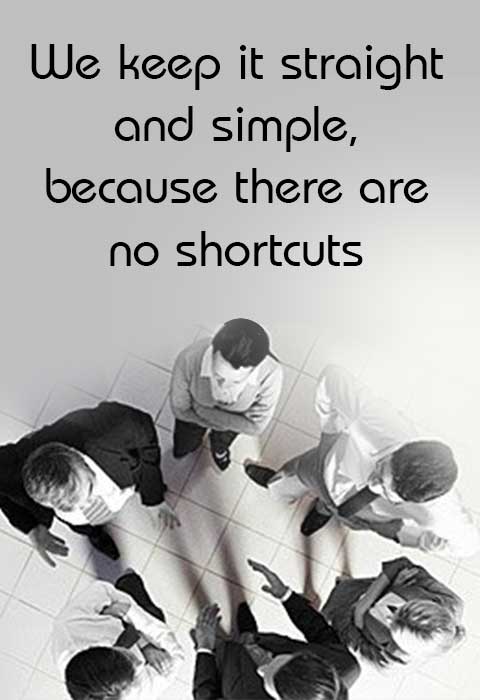We keep it straight and simple, because there are no shortcuts
Though this is most commonly understood as a start-up company, we know that even established, large corporations undergo similar excitement when they are venturing into a new line of business, or when setting up a new unit – and often, when starting off a joint venture! Our expertise is in helping such organizations take those first steps in a well-thought out manner – that’s the way to begin your thousand-mile journey!
People Capability
The buzz in early stage organizations comes from a very strong sense of their mission. The people on the initial team identify with this mission very strongly. The challenge here is to keep that sense of purpose going, as the team expands. For the individuals, that challenge blends with the need to develop their own skills of integrating with the new team members, doing it in a way that keeps the tempo at a high level. Process Definitions Communication Systems Talent Management Frameworks
Process Definitions
Early stage organizations need light-weight processes – but those processes need to be introduced in a manner that allows their scaling up and re-definition as the organization grows. The key is to pay attention to the ‘foundation processes’, establishing them in a solid way and introducing other processes at appropriate points.
Communication Systems
A great deal of the ‘start-up excitement’ comes from the belief that “I know what is going on”. There needs to be a conscious effort to keep this feeling alive, even if it means going against the informality of an early stage organization. It is not only about knowing what one needs to know, but also knowing about how – and who – one needs to tell.
Talent Management Frameworks
Method must take over any perceived madness in people-centric processes. Decisions affecting any stage of an employee life-cycle must not only be fair, but must also seen as being so. The “way we do things around here” – otherwise called the organization’s culture – is built one interaction at a time. Those interactions must therefore show a logical progression.
We keep it straight and simple, because there are no shortcuts
Though this is most commonly understood as a start-up company, we know that even established, large corporations undergo similar excitement when they are venturing into a new line of business, or when setting up a new unit – and often, when starting off a joint venture! Our expertise is in helping such organizations take those first steps in a well-thought out manner – that’s the way to begin your thousand-mile journey!
People Capability
The buzz in early stage organizations comes from a very strong sense of their mission. The people on the initial team identify with this mission very strongly. The challenge here is to keep that sense of purpose going, as the team expands. For the individuals, that challenge blends with the need to develop their own skills of integrating with the new team members, doing it in a way that keeps the tempo at a high level. Process Definitions Communication Systems Talent Management Frameworks
Process Definitions
Early stage organizations need light-weight processes – but those processes need to be introduced in a manner that allows their scaling up and re-definition as the organization grows. The key is to pay attention to the ‘foundation processes’, establishing them in a solid way and introducing other processes at appropriate points.
Communication Systems
A great deal of the ‘start-up excitement’ comes from the belief that “I know what is going on”. There needs to be a conscious effort to keep this feeling alive, even if it means going against the informality of an early stage organization. It is not only about knowing what one needs to know, but also knowing about how – and who – one needs to tell.
Talent Management Frameworks
Method must take over any perceived madness in people-centric processes. Decisions affecting any stage of an employee life-cycle must not only be fair, but must also seen as being so. The “way we do things around here” – otherwise called the organization’s culture – is built one interaction at a time. Those interactions must therefore show a logical progression.



